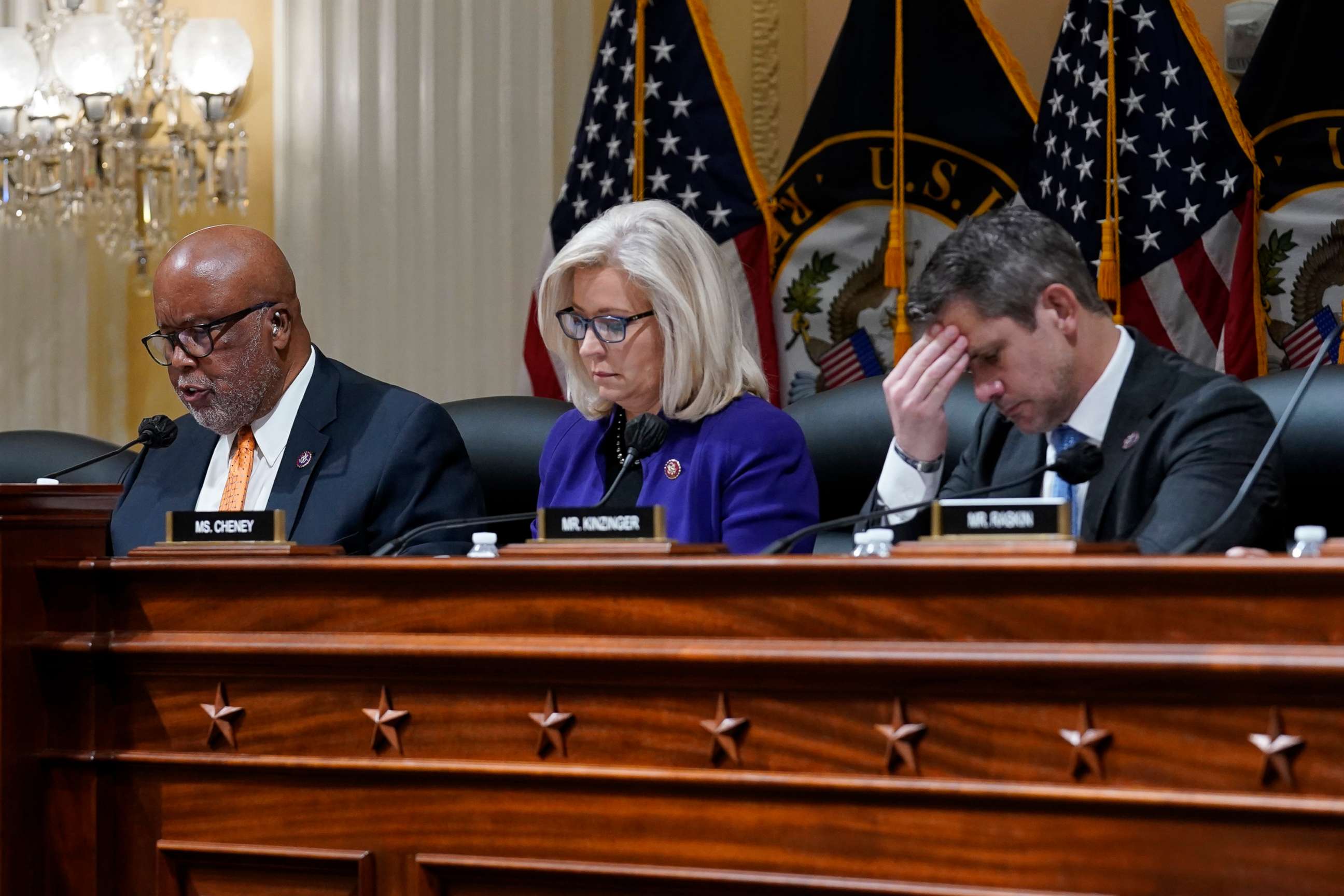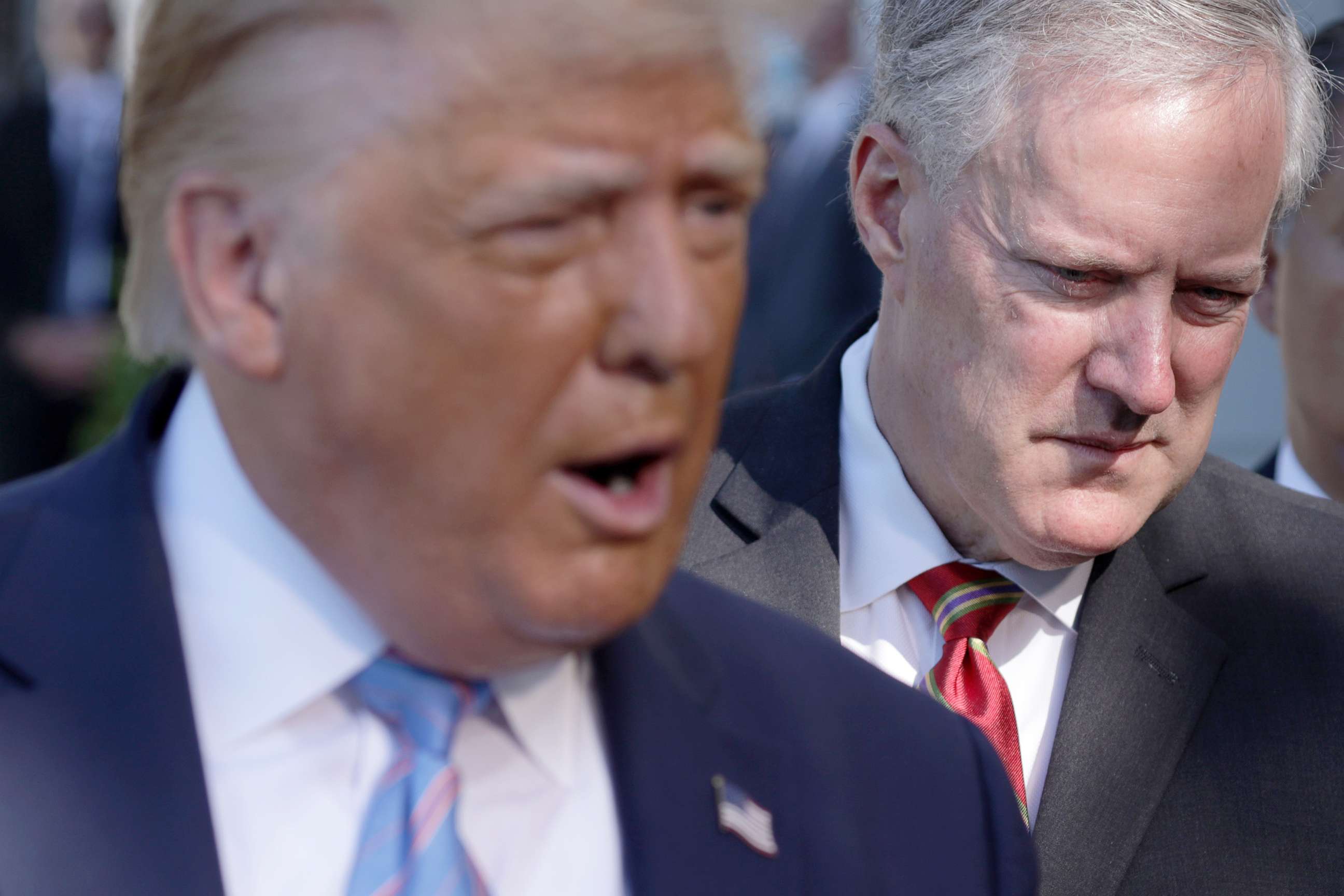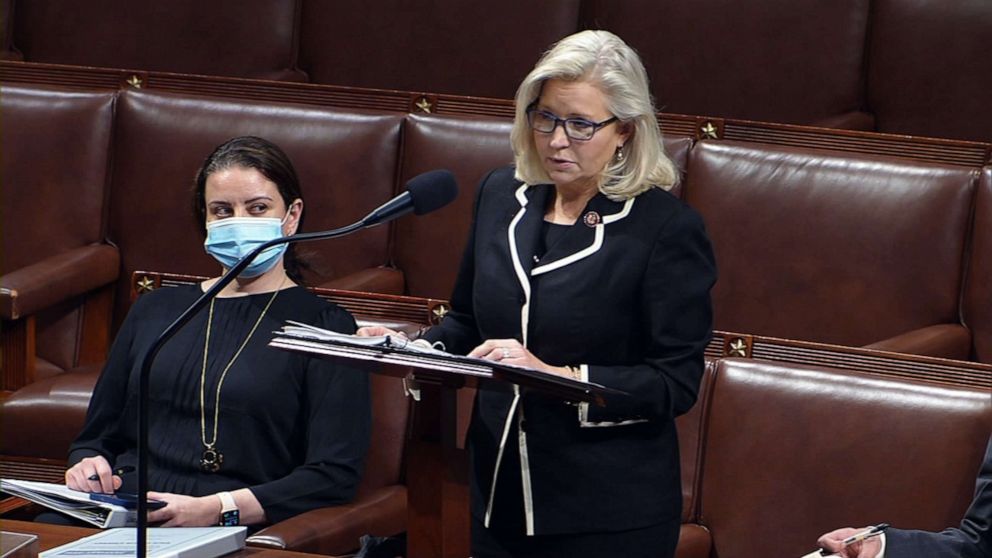How the Jan. 6 committee is piecing together the 'puzzle' of the Capitol attack
Lawmakers are focusing on former President Donald Trump and his top allies.
One year after thousands of Trump supporters stormed the Capitol to disrupt the electoral vote count, one of the most complex congressional investigations in history is taking place largely behind closed doors.

Homegrown: Standoff to Rebellion
A look at the days, events and conversations leading up to Jan. 6, 2021, from the eyes of anti-government groups, extremism experts and several ABC News correspondents who were at the Capitol that day.
A key goal, beyond the Justice Department prosecutions of the rioters, is to hold key players accountable. A central question: Was Jan. 6 part of an orchestrated effort by the-President Donald Trump and his top allies -- including GOP lawmakers -- to overturn the 2020 election?
In the six months since it was created, the House select committee investigating the Jan. 6 attack has interviewed more than 350 witnesses, received more than 300 substantive tips, and issue at least 52 subpoenas - for phone and email records, Trump administration documents, witness testimony and bank records, according to the committee's public disclosures and lawsuits filed by witnesses.
"So far, it seems like the committee's being extremely robust and efficient in their time,” said David Rapallo, a former congressional investigator who spent years as the Democratic staff director on the House Oversight Committee under the late Rep. Elijah Cummings, D-Md., and current Chair Carolyn Maloney, D-N.Y.
Over its first four months, the committee spent more than $413,000 on its investigation, according to disclosures filed with the House of Representatives.
The panel has also received nearly 40,000 pages of records - including text messages, emails and Trump administration documents provided by the National Archives in four separate tranches.
On Jan. 6, ABC News Live will provide all-day coverage of events marking one year since the attack on the U.S. Capitol and the continuing fallout for American democracy.

How they're investigating
Working from an unremarkable congressional office building many Hill staffers couldn’t identify on a map, more than 40 full-time investigators from both political parties - drawn from previous Democratic and GOP administrations -- are working behind closed doors, sometimes taking multiple depositions in a single day.
They’re divided into color-coded teams focused on different aspects of their investigation, according to a source familiar with the inquiry.
The green team is investigating the money trail from GOP donors and supporters to Trump’s campaign and the groups that vowed to fight the results of the 2020 election; the red team is investigating the "Stop the Steal" movement.
Gold and purple teams are digging into Trump’s coordination with GOP lawmakers to overturn the election results, and the involvement of extremist groups, including the Proud Boys and Oath Keepers, in the attack on Capitol Hill.
In July, the committee heard emotional testimony from four police officers who fought to protect the Capitol in January.

The panel has met publicly a handful of times to review and approve contempt of Congress recommendations against Trump adviser Steve Bannon, and former White House chief of staff Mark Meadows for spurning subpoenas for records and testimony, before the House voted to refer both matters to the Justice Department.
The committee recommended former Trump Justice Department official Jeffrey Clark also be held in contempt but gave him another opportunity to appear before the committee.
The Justice Department has not acted on the referral against Meadows -- who initially turned over thousands of pages of records to the committee before opting not to cooperate.
Bannon’s trial is scheduled to begin in July. In November he pleaded not guilty to two contempt of Congress charges, which each carry a penalty of up to one year in jail and up to a $100,000 fine.
Public hearings, putting the 'puzzle' together
Experts and sources familiar with the inquiry believe that one of the select committee's greatest challenges will be presenting its findings in a way that will resonate with the American public.
To that end, the committee is preparing for a series of primetime hearings that could begin in the spring.
Chairman Bennie Thompson, D-Miss., told ABC News that the hearings will focus on how the election was carried out in key states -- and that testimony from local officials could help dispel some of the unfounded claims of widespread election fraud pushed by Trump and his supporters.
The hearings will also explore the role of far-right organizations like the Proud Boys and Oath Keepers on Jan. 6, and the security and intelligence lapses that left the Capitol unprepared last year.
"What we will do in our hearings is put the pieces of the puzzle together, so the average man and woman on the street will understand how close we came to losing our democracy by a violent overthrow of American citizens attacking our own government," he said.
The committee could also seek to hold public hearings with key witnesses in their investigation - including former Trump administration officials. Thompson has not ruled out inviting former Vice President Mike Pence to testify.
But whether any figures close to Trump or who worked in his administration would agree to do so, or comply with a subpoena to appear publicly, is still an open question.
The committee has also invited several GOP lawmakers to sit for interviews with the panel, but none have agreed to do so.
Criminal referrals, Trump's role
The committee is planning to issue an interim report on its findings over the summer, and a final report next fall, which will also include recommendations for actions Congress can take to better defend the presidential electoral count from disruptions.
Lawmakers have also not ruled out making additional criminal referrals to the Justice Department, if they uncover sufficient evidence of criminal activity.
"If in the course of our review we find something that ... we think warrants review or recommendation to the [Justice Department], to be honest with you, we'll do it," Thompson said on "This Week with George Stephanopoulos" on Sunday. "We're not looking for it, but if we find it, we’ll absolutely make the referral."

Rep. Liz Cheney, R-Wyo., the vice chair of the panel, has publicly suggested that Trump may have improperly disrupted an official congressional proceeding -- reading the relevant statute from the criminal code in a December committee hearing.
She also said the panel has received "firsthand" testimony that Trump watched the riot unfold from the White House and dismissed repeated pleas from his daughter, Ivanka, to intervene.
"He could have told [rioters] to stand down. He could have told them to go home -- and he failed to do so. It's hard to imagine a more significant and more serious dereliction of duty than that," she said Sunday on ABC's "This Week."
"There’s absolutely no question that it was a dereliction of duty. And I think one of the things the committee needs to look at is we’re looking at a legislative purpose is whether we need enhanced penalties for that kind of dereliction of duty," Cheney continued.
To make those determinations, the committee is seeking additional Trump White House records from the National Archives, including notes and call logs from Jan. 6
Trump has asked the U.S. Supreme Court to block the committee’s efforts to obtain the records, after two lower courts supported the panel’s claims.
The former president has claimed executive privilege, though President Joe Biden has declined to invoke privilege and directed the archives to comply with the committee.
Compared to House Democrats’ impeachment investigations in recent years, the select committee is moving “expeditiously” to resolve disputes over information and testimony before the courts, Rapallo said.
"They’re not sitting back and waiting,” he said.
Mindful of the political reality they face, the committee is hoping to wrap up its work before the congressional midterms. Republicans, who refused to take part in the investigation after House Speaker Nancy Pelosi blocked two GOP members from joining the panel, have blasted the investigation as a partisan effort to damage Trump, and are expected to dissolve the panel if they retake the House, if not launch their own, more narrowly focused inquiry.
"We feel the urgency of wanting to get our work done," Rep. Pete Aguilar, D-Calif., recently told ABC News.




